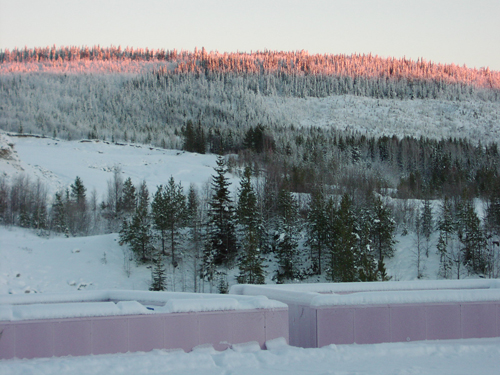Mining sulfide minerals can lead to the release of heavy metals such as copper, lead and zinc into the environment with the acid mine waste and tailings. These compounds can contaminate not just the mining site but the downstream water streams. Acidophilic microorganisms are capable of breaking down metals both in the presence and absence of oxygen. Acidithiobacillus ferrooxidans was isolated from northern Siberia, and this particular strain of Acidithiobacillus helps break down metals at low temperatures and thrives in environments with very high levels of toxic metals.

Photo: courtesy of Mark Dopson
The genome sequence of this strain will allow researchers to analyze Acidithiobacillus species that grow at a range of temperatures from very cold to very hot. While many microbial genomes and metagenomes involved in breaking down contaminants exist, most of them look at microbes that thrive at room temperature or higher-than-normal temperatures. This bacterial genome would give researchers a low-temperature genome sequence to use for comparison. Additionally, the genome sequence will help researchers better understand the roles microbes play in breaking down contaminants in very cold conditions, and help in developing bioremediation techniques for such sites.
Principal Investigators: Dopson, Mark Umeå University
Program: CSP 2010